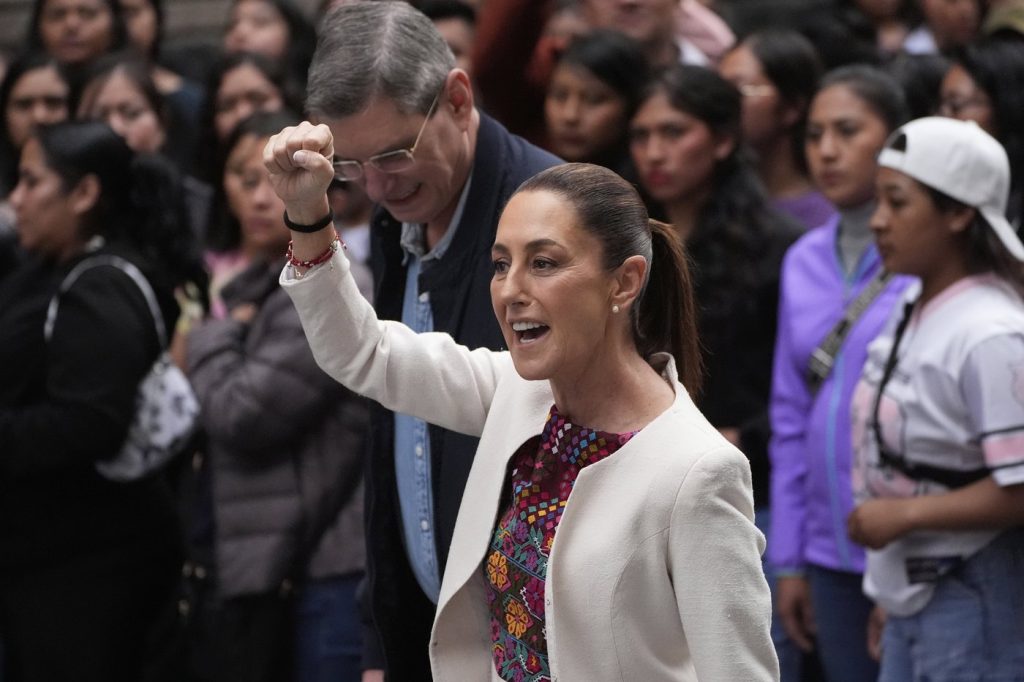MEXICO CITY (AP) – Mexico's ruling Morena party is expected to gain control of the Supreme Court following the preliminary results of the country's first judicial elections held on June 1, 2025. While counting is ongoing for the over 2,600 federal, state, and local judicial positions, results have surfaced for the nine Supreme Court seats, revealing that many of the newly elected justices are closely aligned ideologically with Morena.
This shift is significant as it transforms a previously balanced high court into one that is predominantly sympathetic to the party that orchestrated major reforms in the judicial selection process. Experts caution that this shift will weaken the system of checks and balances within the Mexican government, enabling the governing party to exert greater influence over all three branches of government. Claudia Sheinbaum, the President of Mexico and a Morena member, along with other party leaders, will now have a more straightforward path to advance their legislative agenda.
Georgina De la Fuente, an election specialist with Strategia Electoral, expressed concerns about this accumulation of power, stating, "We’re watching as power is falling almost entirely into the hands of one party. There isn’t any balance of power." The implications of a Morena-dominated court could allow for the swift passage of significant reforms, including electoral changes that could further consolidate their authority.
Among the key candidates elected, Hugo Aguilar Ortiz, an Indigenous lawyer from Oaxaca, emerged as a standout figure, garnering the most votes. Known for his activism in advocating for the rights of Indigenous peoples, Aguilar has criticized corruption within the judiciary and stands apart with no explicit party affiliation. In contrast, many of the other candidates demonstrate significant ties to the Morena party, including Lenia Batres and Yasmín Esquivel, both of whom were appointed by former President Andrés Manuel López Obrador. Esquivel's campaign highlighted gender equality and judicial modernization, though she faced controversy over plagiarism accusations in 2022.
Other notable candidates include Loretta Ortiz and María Estela Ríos González, both of whom have extensive backgrounds in public service and law, and are considered allies of the Morena party. Giovanni Figueroa Mejía and Irving Espinosa Betanzo, while lacking clear political affiliations, have supported the recent judicial overhaul. In contrast, figures like Arístides Rodrigo Guerrero García have gained attention through their unorthodox campaign strategies, such as using humorous social media videos.
The elections were characterized by low voter turnout, around 13%, and confusion regarding the new voting system, which opponents quickly pointed to as a failure. Critics argue that the reforms pushed through by López Obrador’s administration were a method for the ruling party to seize power at a time when its popularity was high, asserting that the overhaul prioritizes party alignment over judicial independence.
Sheinbaum defended the reforms, asserting that they would enhance democracy in Mexico, claiming, "Mexico is a country that is only becoming more free, just, and democratic because that is the will of the people." With more than 85% of the ballots counted, the extent of the impact that these elections will have on Mexico's judicial system remains to be seen.











